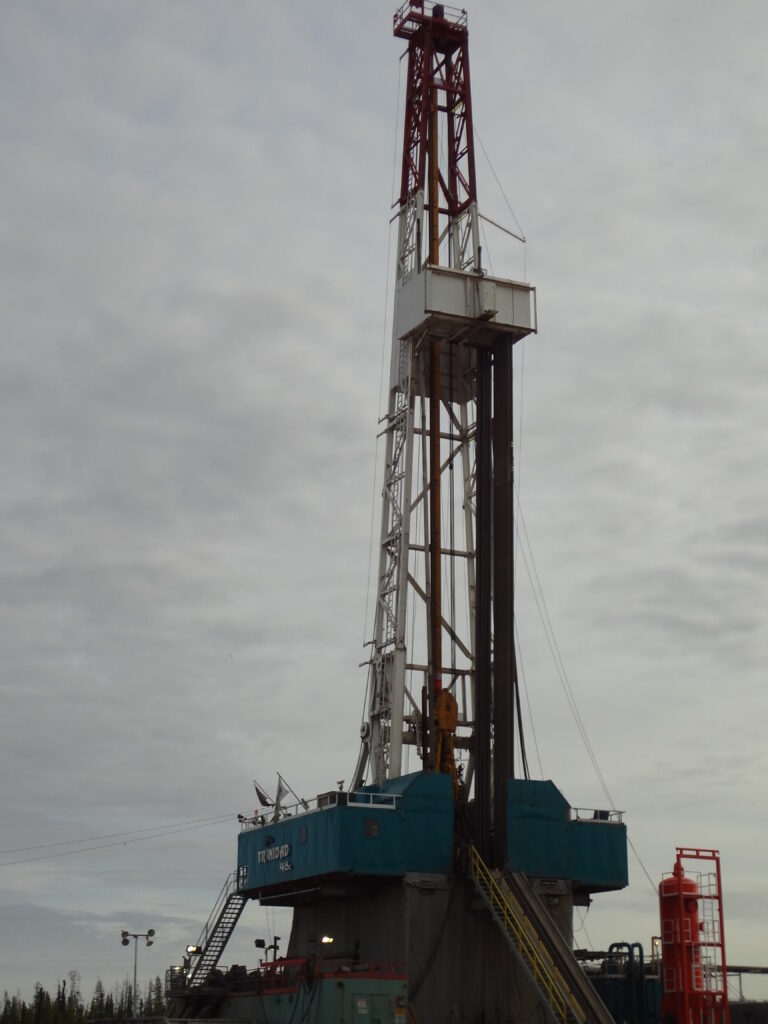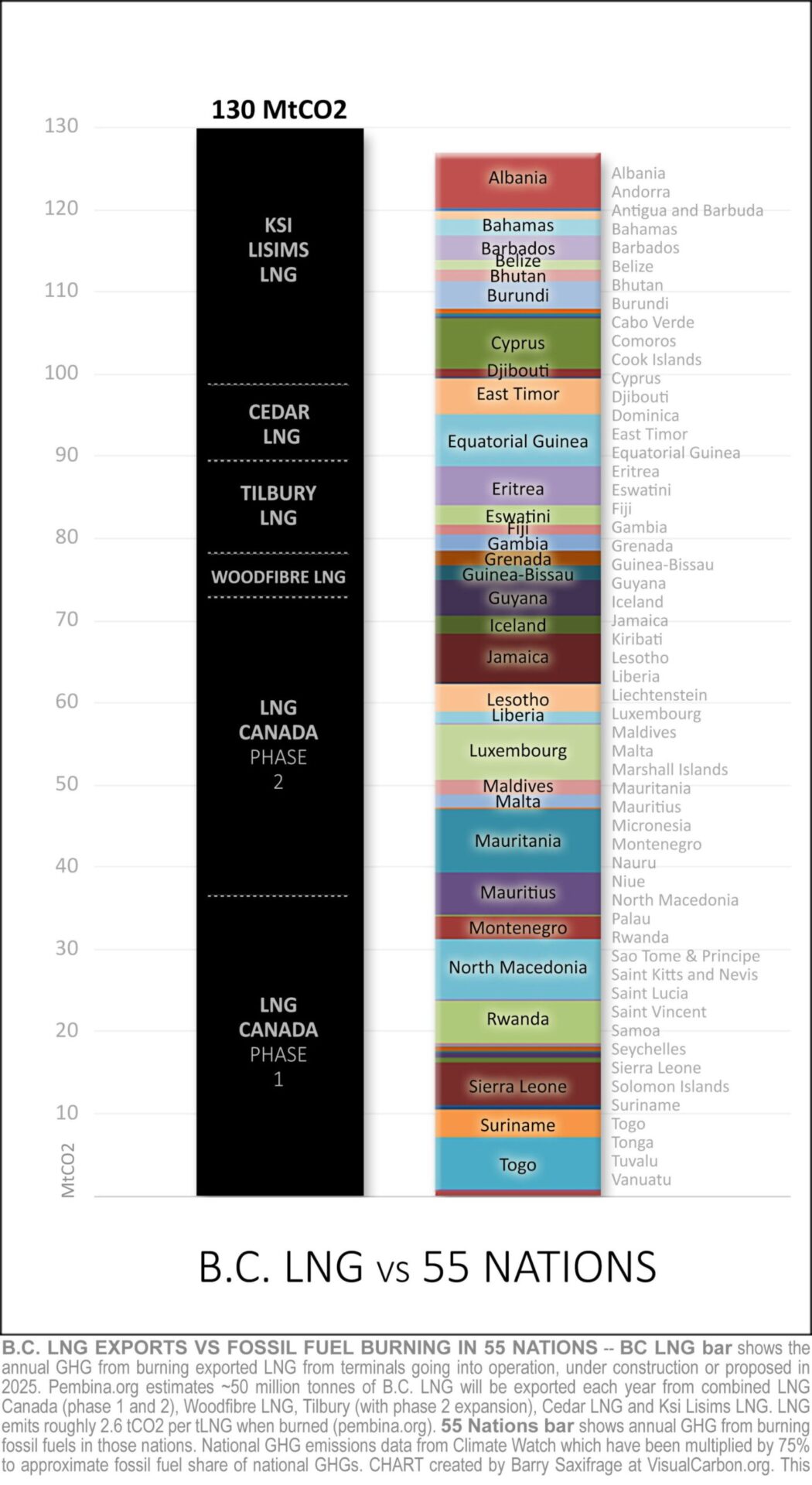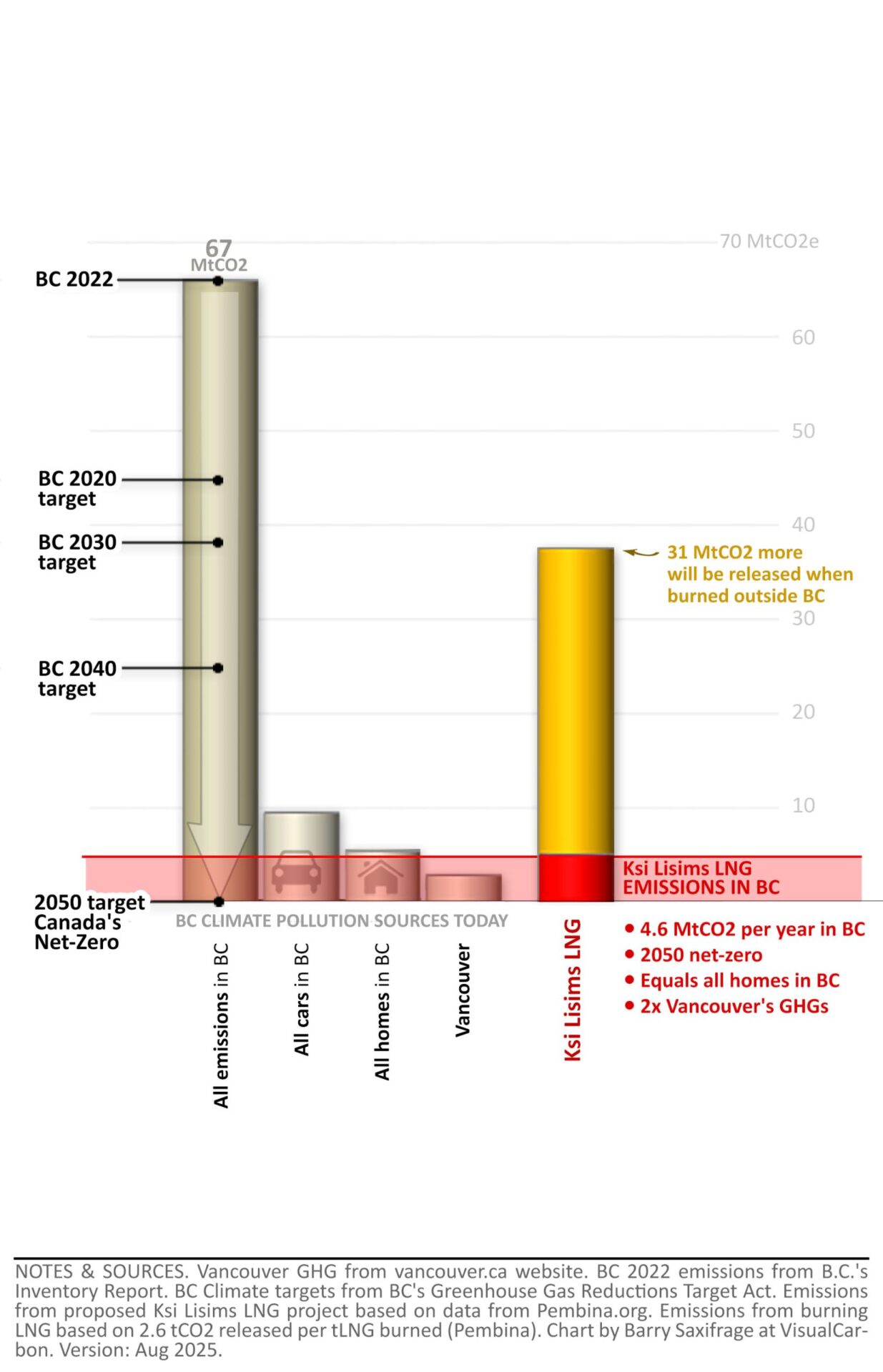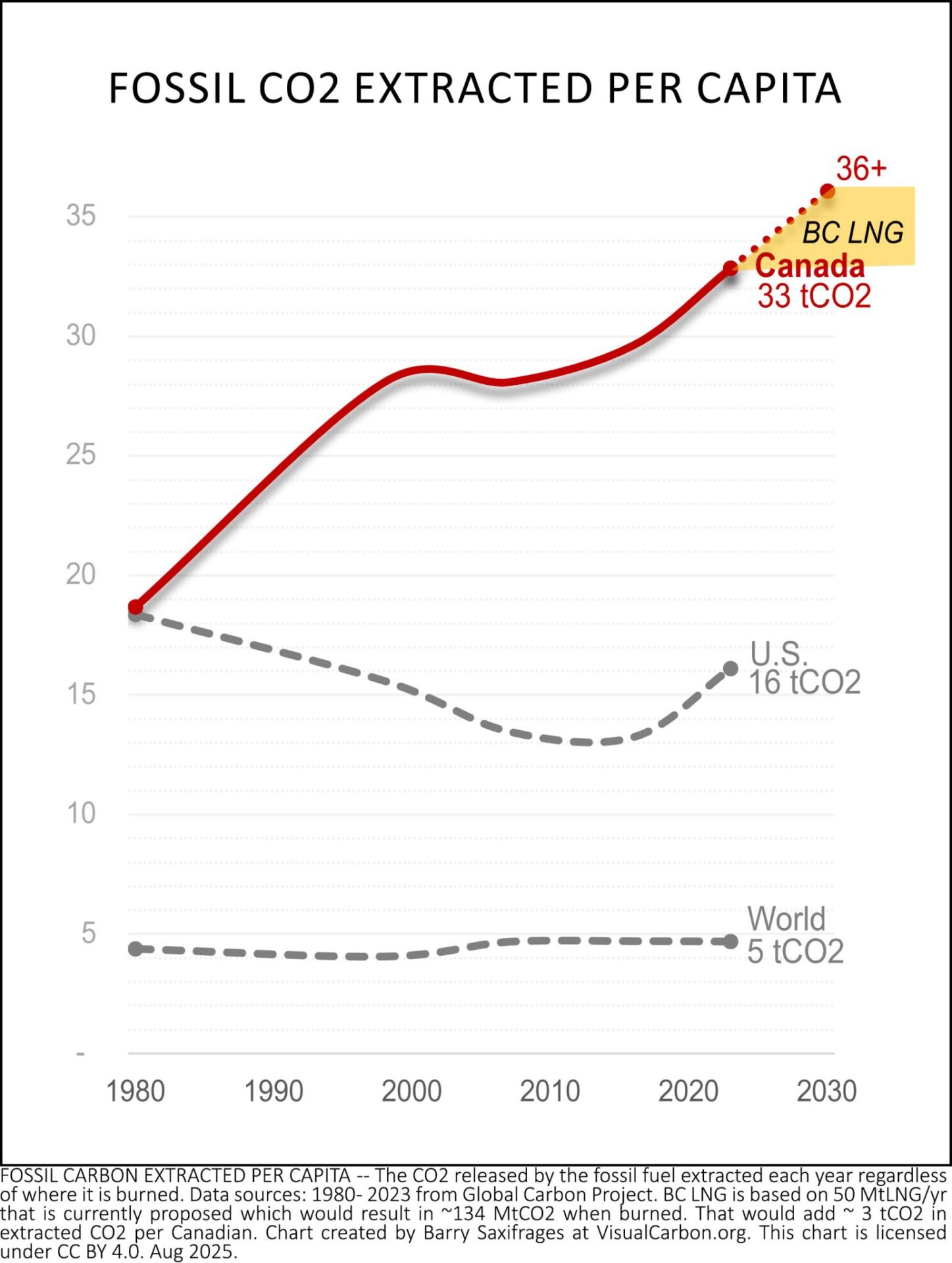Backgrounder: LNG expansion in BC threatens to undermine global efforts to fight climate change
Reports & Publications
LNG expansion in BC threatens to undermine global efforts to fight climate change
Backgrounder | 2025
This is background to the media release ‘Landmark Climate Ruling Raises the Bar for BC’

Backgrounder on LNG in British Columbia
If both phases of LNG Canada (28 million tonnes of annual production), Woodfibre LNG (2.1 million tonnes), Cedar LNG (3-4 million tonnes), Tilbury LNG (4.4 million tonnes) and the not-yet approved Ksi Lisims LNG (12 million tonnes) go ahead, the resulting combined annual emissions from producing and burning LNG made in B.C. would be 2.5 times higher than the current total provincial emissions per year. B.C. would join the world’s top fossil fuel producers threatening national and international efforts to end fossil fuel dependency.
In past years, initiatives like B.C.’s carbon tax and CleanBC plan inspired hope that the province could become a climate leader, but the province has so for far missed its pollution reduction targets. The oil and gas sector is a major climate polluter, and increasing emissions from new LNG projects and fracking will make it even harder for B.C. to reduce emissions. CleanBC is currently under review, amidst growing concern about B.C.’s and Canada’s stubbornly high levels of climate pollution compared to other G7 countries.
This summer, LNG Canada Phase 1 went into operation and is expected to increase B.C.’s oil and gas emissions by about 4 million tonnes of CO2 per year (about 6% of B.C.’s current emissions). Once burned abroad, the 14 million annual tonnes of fracked gas from LNG Canada Phase 1 will result in over 36 million tonnes of CO2 per year (more than half of B.C.’s current official emissions). The proposed Ksi Lisims LNG project with annual production of 12 million tonnes, currently awaiting approval from the BC government, would have a similar global impact like LNG Canada phase 1.
If all of the additional projects, under construction or proposed would go ahead, the emissions from B.C.’s oil and gas sector would increase to over 30 million tonnes, and emissions from burning B.C. LNG abroad would increase to about 130 million tonnes. The latter alone is equivalent to the estimated fossil fuel emissions from 55 nations, countries that could feel motivated by the ICJ statement to sue jurisdictions like B.C. and Canada for climate damages in the future.
Using the social cost of carbon estimate of the Canadian government for 2025 ($271 per tonne of CO2), 130 million tonnes of annual CO2 emissions would translate to annual costs over $35 billion (social cost of carbon “is a measure of the incremental additional damages that are expected from a small increase in emissions of a given GHG”).
The B.C. government has a range of options to strengthen CleanBC and ensure all sectors, including oil and gas, achieve their legislated targets; from caps for pollution and production, to fully redirecting fossil fuel subsidies to climate solutions, closing loopholes and increasing the price on industrial carbon pollution.
Below you’ll find three graphs comparing B.C.’s projected LNG emissions against other countries and sectors (Graphics by Barry Saxifrage, visualcarbon.org).

Graphics by Barry Saxifrage, visualcarbon.org

Graphics by Barry Saxifrage, visualcarbon.org

Graphics by Barry Saxifrage, visualcarbon.org
You can help protect healthy ecosystems
Donate today. Together, we can build a brighter future.

Photo Credits: Leila Darwish
